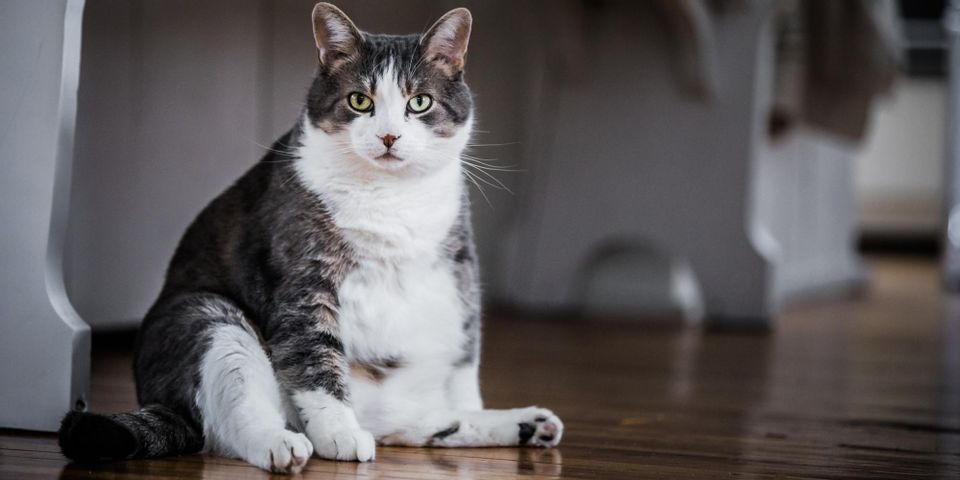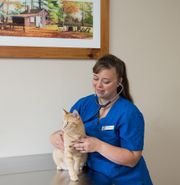
Obesity is a common occurrence in cats, especially as they get older and their metabolism slows down. Veterinarians estimate that 60% of cats in the U.S. suffer from obesity. While a chubby cat might be cute to look at, it can also be harmful, leading to certain health risks that can impact their overall wellbeing. Learn more about feline obesity in the guide below.
What Qualifies as Obese?
Cats weighing 10 to 19% more than their optimal weight, as determined by their breed, are considered obese. To identify whether your cat is overweight or obese, first feel along their rib cage for signs of excess padding. Healthy cats shouldn't feel any thicker than the padding on the back of your hand.
Ribs that are hard to find may indicate that your cat is overweight. If you're unable to locate their ribs at all, your feline is likely obese.
How Does Obesity Occur in Cats?
 The most common cause of feline obesity is overeating, which is typically caused by overfeeding. It can also occur due to a lack of exercise. Just like humans, cats need physical activities to maintain a healthy weight.
The most common cause of feline obesity is overeating, which is typically caused by overfeeding. It can also occur due to a lack of exercise. Just like humans, cats need physical activities to maintain a healthy weight.
When cats age, their metabolism slows down and reduces their overall energy. They may feel less desire to play than they did when they were younger, leading to a sedentary lifestyle that contributes to weight gain.
What Are the Health Risks?
Like humans, being overweight can have a negative psychological impact on your cat, causing them to refrain from normal activities such as play and hygiene. It can also affect bodily functions, causing fatty infiltrations on the liver and other arteries. The extra weight puts pressure on their internal systems and joints and increases their risk of developing certain cancers, diabetes, urinary bladder stones, heart disease, hypertension, and osteoarthritis.
How To Prevent Obesity in Cats
If you're concerned your cat is obese, work with your veterinarian to identify or rule out any underlying health issues that could be contributing to their weight gain. If no illnesses are present, your vet will work with you to create a healthy diet for your cat that will help them safely lose weight.
You will likely need to control their food intake or switch to more nutritious food. Your vet might prescribe specially formulated pet food for cats that are severely obese. Consider increasing your cat's activity level, encouraging play with new and exciting toys, or taking them on guided walks around your property or your neighborhood, if it's safe to do so.
If you're concerned about your cat's weight, contact Baraboo Valley Veterinary Clinic in Baraboo, WI. For over 20 years, their team of caring and dedicated veterinarians have provided a variety of veterinary services, including nutritional counseling and weight management, wellness exams, vaccines, and more. Contact them today at (608) 355-2882 to schedule an appointment, or visit them online to learn more about their services.
About the Business
Have a question? Ask the experts!
Send your question

